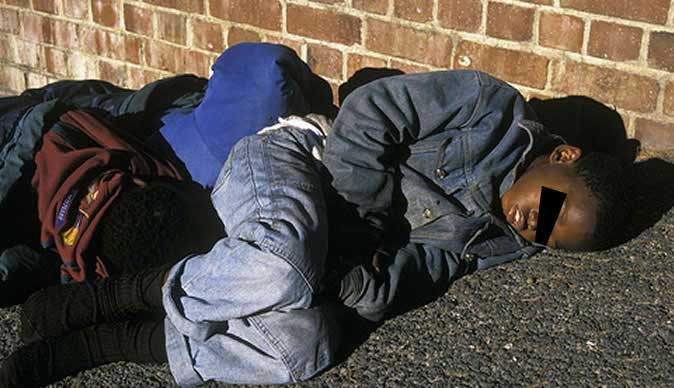Government is working on a pilot project, to provide accommodation and skills training to street children during and after the nationwide lockdown.
The street children will be housed at a government facility in Masvingo which can accommodate 400 people and currently has 16 children who were rounded up from the streets in that city.
Addressing the media in Bulawayo Wednesday, Deputy Minister of Public Service, Labour and Welfare, Lovemore Matuke, said they want to make sure homeless children were fed and protected from contracting COVID-19.
“The shelter in Masvingo will not only house people in Masvingo but can accommodate 400 but the current enrolment lies at 16 people. We can either take people from Bulawayo to Masvingo but for your own information, we have a number of training centres in Bulawayo but just as a pilot project we have decided to deploy most of those people to Masvingo because they have skills training and they are ready to entertain those people whilst waiting for the lockdown,” he said.
Matuke added that even after the lockdown, the intention was to continue training the homeless children so that they leave with skills after a year or so.
“We are now taking street kids for skills training rather than just keep them. So it’s quite an advantage because they will be receiving free training and free food which the government will be providing,” he said.
The deputy minister claimed that the government would also extend the same courtesy to homeless people.
“We are looking for the homeless, if there’s anybody – let us know we have enough homes to keep our old mothers and old fathers who have nowhere to go. We have places in Bulawayo such as old peoples home where we can come up with a dormitory to look after them without any problems. In fact they actually receive money when they go there. They are given provisions and also receive a bit of an allowance so that they stay without problems,” Matuke said.
He added the government is also giving out ZWL$180 to vulnerable individuals.
“If we find them we will be quite happy to take them and try see if we can feed them, whether we can give the necessary requirements in terms of clothing and food. This is the duty of the ministry and that was also directed by the president.”
Meanwhile in his speech, Matuke said in Harare, the ministry is currently profiling and documenting the identified children.
“Tracing their families and reunification are ongoing where circumstances permit. To date a total of 46 children have been reunited and reintegrated with their families. Case management process is continuing to make sure that children and families identified are fully integrated into the society through addressing the push and pull factors which drove them on to the streets. Enrolment back into the formal education system will be done once schools open and school fees will be paid,” he highlighted.
Children who cannot be reunited with their relatives or parents due to unfavourable living conditions at home, would be placed in child care institutions for care and protection, said the deputy minister.
“Clinical interventions are thus required for those who abuse drugs and have anti-social behaviours, efforts are underway to have some of these children and adults to undertake vocational training courses at various vocational training institutions,” he recommended.
Matuke said provision of specialist child protection services for children in need is was done by social workers, stakeholders and communities were encouraged to report all cases of child maltreatment to authorities.
“Where possible, confidential reporting should be made through the 116 hotline number, which can be accessed from all parts of the country.
Once a report is made through this platform. Social workers and law enforcement agencies will promptly respond to safeguard and protect the child in need of care and protection,” he said.
The deputy minister mentioned that “in Harare 81 children and 149 adult men and 16 women with their six toddlers has been taken in by social welfare to places of safety.”
“In Bulawayo the number was 31 male children. Mutare 13 males and in Masvingo 11 male children and one adult male,” Matuke said.
“Social workers within the department of social welfare are removing these children to places of where they are being protected with meals thrice a day and other basic including blankets., clothing, soaps, and other detergents. This is done in partnership with the Ministry of Youth and non-governmental organisations such as Eat out Trust, Child Protection Services in Harare, Simukai in Mutare and Scripture Union in Masvingo and Bulawayo.”

